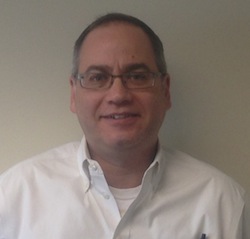Interview with Professor Mark Holtzman, Chair and Associate Professor of Accounting, Seton Hall University
Professor Mark Holtzman recently shared with Masters in Accounting his academic and professional insights in the field of accounting. He is Chair of the Department of Accounting and Taxation at Seton Hall University, and holds his PhD from University of Texas at Austin. Professor Holtzman’s publications include the book Managerial Accounting for Dummies.
How did your professional experiences shape your approach to the classroom?
 I had a wonderful work experience at Deloitte & Touche’s New York Office. I saw many different clients and worked on auditing in many different areas. Deloitte gave me the chance to run field audits in my third year. I’ve been sharing these experiences ever since.
I had a wonderful work experience at Deloitte & Touche’s New York Office. I saw many different clients and worked on auditing in many different areas. Deloitte gave me the chance to run field audits in my third year. I’ve been sharing these experiences ever since.
What are your favorite technologies to use at the lectern?
I think that learning should be engaging and exciting. I chose to dedicate my career to learning and teaching accounting for a reason – I’m fascinated by it all. I share that enthusiasm with students every chance I get.
How do you see the study of accounting evolving in the next five to ten years?
Accounting education seems to be changing in three ways. First, we are using more technology. The technology has evolved to the point where students can prepare assignments online and software will correct their work. Then they can try again until they master it. Second, educators are being forced to improve their assessment activities. This creates accountability within the school, so that professors are accountable for their students’ performance. Third, we are increasing the emphasis on skills. It’s not enough for students to know the rules. They must be able to speak well, write clearly, and think in a critical manner.
What two or three things can help students get the most out of an accounting program at the undergraduate level? At the master’s level?
At all levels, students should make a sincere effort to master what they learn. If they want to be successful accountants, then they should learn everything they can in order to achieve that objective. You wouldn’t want to lay unconscious on a table under the knife of a surgeon with a B+ average, would you? Likewise, young budding accountants should work hard so that they can put themselves forward as true experts.
Many publications have recently noted a national shortage in accounting and finance professors. What advantages might there be to current accounting students in pursuing an education track that leads to teaching?
I love my job. I enjoy the interaction with students, learning more, conducting research, writing, and working with fantastic colleagues. I make a whole lot less money than I would if I were a Big 4 partner. However, because of the shortage of PhD faculty in accounting, the salaries are among the highest in academe.
Would you do anything differently in your education or professional experience if you had the opportunity?
If I had it all to do over again, I would have studied harder in school.
Is there any further advice you would share with students considering a career in accounting?
An accountant is a professional. That means that he or she not only knows GAAP and IRS codes, but also knows how to speak well, how to write clearly, can think critically, and does good things for people. The professional has a reputation to protect, a reputation that is extremely difficult to build, and very easy to destroy.
Our sincere thanks to Professor Holtzman for taking the time to sit with us and share his advice for our readers! If you’re interested in learning more from Professor Holtzman, be sure to visit his LinkedIn.
